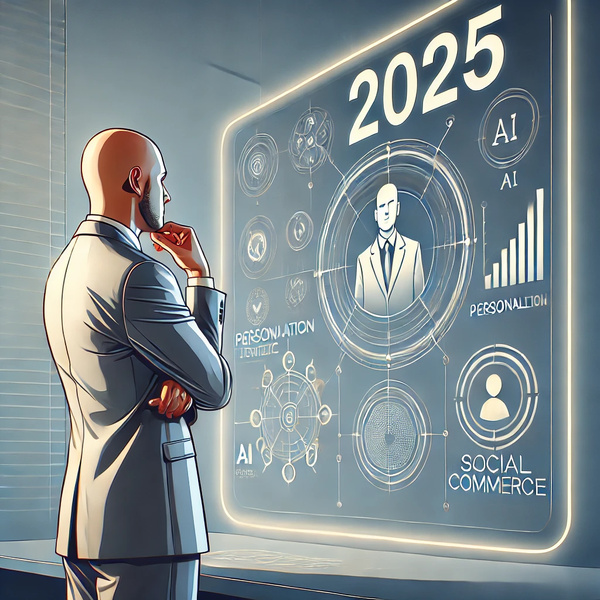Who is Neil Patel?
Neil Patel's Key Marketing Predictions for 2025
As economic uncertainty looms and budgets tighten, marketers will be challenged to deliver results with fewer resources. This trend is driven by:
Increased expectations from consumers, with 38% willing to decrease spending after a bad experience.
The need for innovative strategies to maximize output while minimizing costs.
2. The Rise of Zero-Click Searches
Recent studies show that 60% of searches result in zero clicks to websites. This trend is expected to intensify as Google continues to prioritize keeping users on its platform. Marketers must adapt by:
- Focusing on optimizing content for visibility within search results.
- Understanding that traditional click-through rates may not fully represent engagement.
While Google remains dominant, emerging search platforms like Search GPT and Perplexity are gaining traction. Marketers should:
- Diversify their optimization strategies across multiple platforms.
- Monitor referral traffic to understand how users discover their content.
Search is evolving beyond keywords. With AI advancements, users will rely more on conversational queries and visual search. To stay relevant, businesses should:
- Invest in creating visually appealing content.
- Optimize for voice search, which is becoming increasingly popular, especially among younger generations.
Personalization is becoming increasingly critical, with 73% of consumers preferring brands that offer personalized shopping experiences. However, marketers must strike a balance between helpfulness and creepiness in hyper-personalization. Key strategies include:
- Utilizing real-time analysis to tailor content across platforms, including websites, emails, and chatbots.
- Avoiding overly personalized experiences that may make consumers uncomfortable.
In the B2B sphere, authenticity and personalization are essential. With millennials making up 75% of business buying teams, businesses should:
- Understand the deeper layers of their audience, recognizing diverse interests and backgrounds.
- Build long-term relationships by focusing on delivering value even after the transaction.
Shopping ad formats are becoming more visual and interactive, leveraging AI for personalized experiences. Businesses should:
Utilize new ad formats, such as 360-degree product views and shoppable videos, to enhance engagement.
Keep an eye on platforms like Google and Pinterest, which are leading the way in visual search.
8. The Role of AI in Marketing
AI integration into advertising campaigns is set to expand, with platforms like Meta, TikTok, and LinkedIn pushing for automated optimization. Marketers should:
- Embrace AI tools for campaign management, allowing for real-time adjustments based on user signals.
- Prepare for increased privacy regulations, ensuring compliance while still delivering personalized experiences.
Social commerce is on the rise, with revenues projected to surpass $1 trillion by 2028. Marketers should:
- Leverage influencers as primary sources for product discovery across social platforms.
- Explore live shopping features to facilitate direct sales and enhance user engagement.
In a competitive market, brand authenticity is key. Companies should:
- Focus on purpose-driven marketing that resonates with their audience's values.
- Create relatable content that feels genuine rather than overly polished.
As we approach 2025, the marketing landscape will continue to transform rapidly. By staying informed about these trends and adapting strategies accordingly, businesses can position themselves for success in an increasingly competitive environment. Embracing innovation, leveraging technology, and focusing on customer experience will be key to navigating the future of marketing.
By following these insights from Neil Patel, marketers can not only survive but thrive in the evolving digital landscape. Are you ready to embrace the future of marketing?
 Accueil
Accueil






 Accueil
Accueil
























